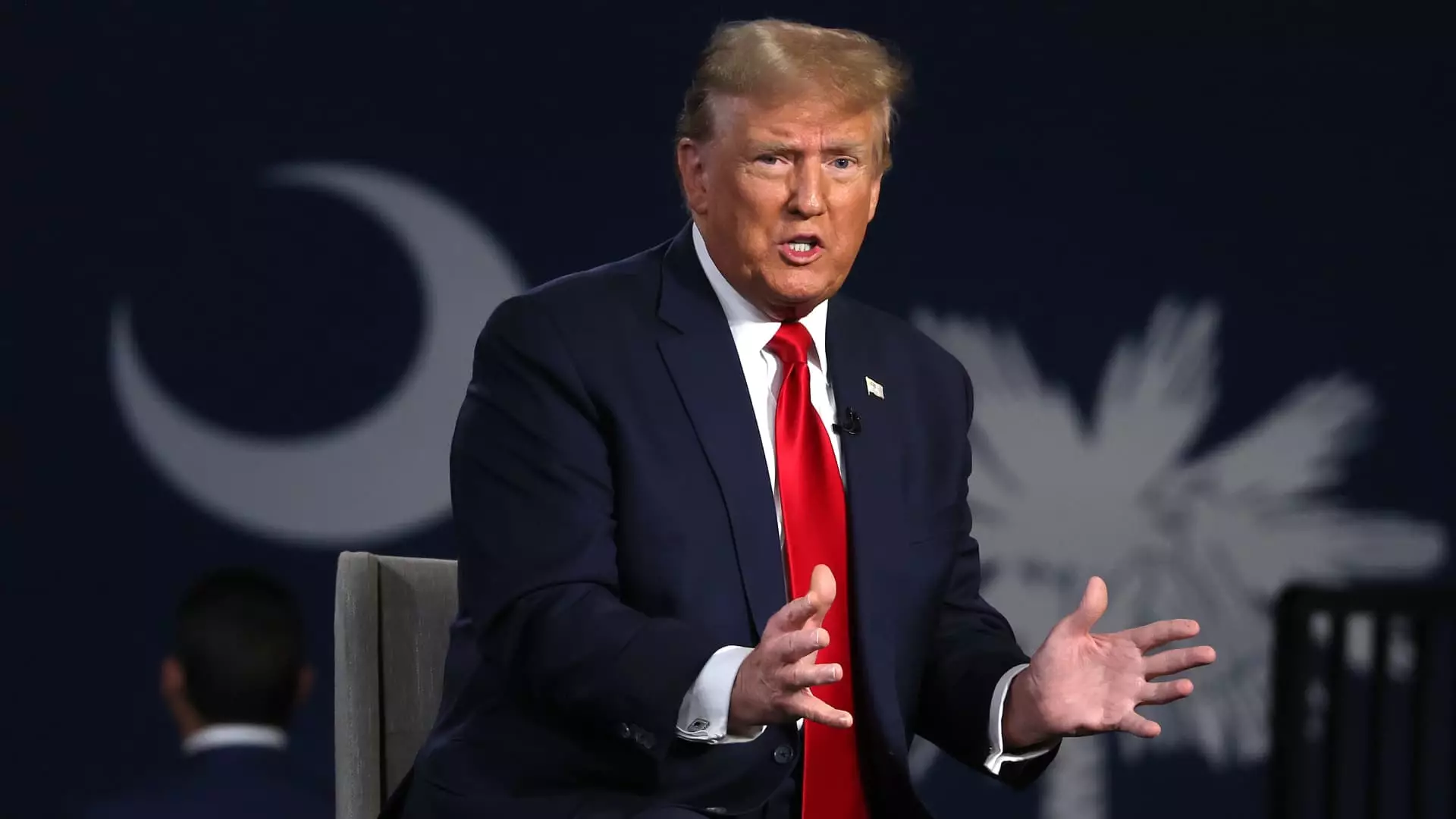Donald Trump and his co-defendants were in discussions with insurance giant Chubb for a $464 million appeal bond in the former president’s civil fraud case. However, the company made a surprising decision to back out of the negotiations, leaving Trump’s legal team scrambling for alternatives. Chubb’s reversal comes just days after it garnered attention for providing Trump with a bond in a separate case, which raised eyebrows in the legal community. The abrupt withdrawal from negotiations with Trump highlights the complexity of his legal battles and the challenges he faces in securing the necessary financial support to navigate through them.
Chubb’s refusal to craft a bond that would halt the massive business fraud judgment poses a significant threat to Trump’s legal defense strategy. With more than 30 companies declining to provide the required bond, Trump’s attorneys are facing an uphill battle in their efforts to delay the judgment enforcement by New York Attorney General Letitia James. The potential seizure of Trump’s assets looms large as James prepares to take action if the judgment is not promptly satisfied. The legal maneuvering in this case underscores the high stakes involved and the intricate financial arrangements required to navigate the intricate web of legal challenges.
The complexity of appeal bonds, designed to prevent the losing party from evading their obligations while ensuring a swift resolution for the plaintiff, is underscored by Trump’s struggle to secure the necessary financial backing. The specific requirements set forth by the surety companies, such as the nature of collateral accepted and the level of security demanded, present a significant challenge for Trump and his legal team. The limited willingness of companies to accept real estate or other hard assets as collateral further complicates the appeal bond process, making it increasingly difficult for Trump to meet the strict criteria established by the court.
Chubb’s handling of Trump’s appeal bond requests has come under intense public scrutiny, with the company facing questions about its impartiality and potential conflicts of interest. The swift reversal of its decision to consider real property as collateral for Trump’s bond adds another layer of complexity to the ongoing legal saga. The involvement of high-profile figures such as Chubb CEO Evan Greenberg in the bond issuance process raises concerns about the transparency and fairness of the proceedings. The public backlash against Chubb highlights the delicate balance between legal obligations and ethical considerations in high-stakes legal disputes.
The financial constraints faced by Trump in meeting the hefty appeal bond requirements underscore the broader legal challenges he confronts in defending against the fraud judgment. The need to quickly liquidate assets or secure alternative funding sources poses a significant hurdle for Trump, given the limited options available to him. The unprecedented size of the bond and the stringent conditions imposed by the surety companies further complicate Trump’s legal strategy, putting additional pressure on his legal team to find a viable solution. The looming deadline for James to collect on the fraud judgment adds urgency to Trump’s efforts to secure the necessary financial support to continue his legal battle.
Donald Trump’s legal woes continue to mount as Chubb’s withdrawal from appeal bond negotiations further complicates his defense strategy. The intricate financial arrangements and legal challenges involved in securing the necessary funding underscore the high stakes of the fraud case and the potential consequences for Trump’s financial interests. The public scrutiny surrounding Chubb’s handling of the appeal bond requests raises questions about the fairness and transparency of the legal proceedings. As Trump navigates through the complexities of the legal system, the outcome of his legal battles remains uncertain, with significant implications for his personal and professional reputation.

